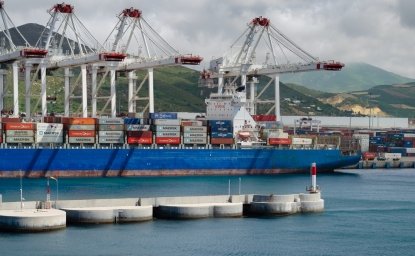The Link Between Corruption and Gender Inequality: A Heavy Burden for Development and Democracy


Corruption, understood as the abuse of entrusted power for private gain, is a major obstacle for sustainable economic development in Latin America. It endangers democracy, equality, the rule of law, ethical values, and justice. Furthermore, many forms of gender inequality are closely linked to high levels of corruption.
Corruption can concisely be defined as the improper use of public office in exchange for private gain. Nevertheless, corruption can take multiple forms. It can be classified as grand, referring to high levels of government corruption, petty when the abuse of power is carried out by lower-ranked officials, or political where the manipulation of policies, institutions, and rules in the distribution of resources and financing by policymakers are abused to sustain political power, status, and wealth.
Recently Latin America has undergone several massive and unprecedented anticorruption investigations. Consider Brazil, where the prosecution of politicians, and business leaders resulted in the recent incarceration of former president Luiz Inácio Lula da Silva, as well as the case of Peru, with the resignation of former president, Pedro Pablo Kuczynski. Beyond these cases, the region is continually perceived as highly corrupt.
Citizens in Latin America and the Caribbean express a profound distrust of their governments. According to a November 2017 study by Transparency International, over half of the people surveyed felt that their government fails at addressing corruption. Politicians and the police are perceived as the most corrupt and bribery serves as a barrier to access to key public services in Latin America, something that particularly affects the most vulnerable sectors of society.
Of those surveyed in the study, 51 percent of citizens living in Mexico and 46 percent in the Dominican Republic reported they have had to pay a bribe to be eligible for basic public services. Based on the bribery rates for each country in Latin America and the Caribbean, 29 per cent of citizens who had come into contact with a public service in the previous 12 months had paid a bribe, which is equivalent to over 90 million people living in the 20 countries surveyed in the region. The majority of those affected are reluctant to report these crimes to the authorities. It is estimated that only 9 percent reported the issue to the authorities; and of this small minority, many suffered negative retaliation as a result.
Evidence shows that women perceive and experience corruption differently than men, and that women suffer corruption to a greater extent due to the unequal power relations between men and women. Corruption exacerbates these power dynamics, limiting women’s access to public resources, information and decision-making, thus reinforcing social, cultural, and political discrimination. There are forms of corruption such as sexual extortion and petty corruption which constitute a heavy burden for women.
Sexual extortion—one of the appalling gendered forms of corruption—can be defined as the abuse of power to obtain a sexual benefit or advantage. This phenomenon affects women and girls throughout Latin America, especially in low and middle-income countries and remote areas. Sexual extortion is rarely included in the definitions of corruption, despite the fact that it has been documented that women and girls are often forced to provide sexual favors rather than money to access public services.
A recent global review prepared for UNESCO on school‐related gender‐based violence (SRGBV) revealed that, despite the differing conceptualizations of gender based violence and varying methods of data collection, there is a high incidence of schoolgirls who are victims of sexual harassment around the world. For example, in 2001 a study of the sexual abuse of girls in schools in Botswana reported that 67 percent of 560 female students had experienced sexual harassment by a teacher. In Latin America, Peru reported 169 teachers accused of rape and ‘acts against decency’ with students in a single year. Aggressors were simply transferred to administrative positions or to other schools. Out of a sense of shame, girls endure violence and threats to their health and human dignity in silence; they have learned that they can be stigmatized if they speak out, while their offenders enjoy total impunity.
The trafficking of women is also related to corruption. Police complicity and acceptance of women as sexual objects interferes with efforts to reduce or eradicate human trafficking.
Corruption robs girls and women of their dignity, impedes their full access to public health, education, and development opportunities, and in many cases threatens their lives.
The relationship between corruption and higher female mortality rates has also been well documented. Research published by Transparency International in 2014 revealed that the number of mothers dying during birth increases exponentially in countries where there is a higher incidence of bribery. Four hundred eighty-two women per 100,000 died during childbirth in countries where 60 percent of the population paid bribes, compared to only 57 women per 100,000 in countries where 30 percent or less of the population had been forced to pay bribes.
Among the multiple factors that intensify gender inequality in corrupt countries, one of the most important is the correlation with poverty. An estimated 70 percent of the world’s poor are women. Both the lack of transparency and mismanagement in public services constitute an enormous obstacle for women to break intergenerational cycles of poverty.
In addition, women’s civil rights frequently go unprotected and women are treated unequally before the law. In societies where the law enforcement system is corrupt, girls, women, and other minorities are strongly affected when dealing with matters of marriage, divorce, child custody, financial independence, access to land and property rights, domestic abuse, human trafficking, allegations of adultery and rape, among others.
Gender equality is necessary for a sustainable and inclusive development, which will not be attained in Latin America until equal rights and opportunities are guaranteed. As long as corruption exists—whether in the form of fiscal distortions or bad management or both—inequality will continue to undermine the construction of solid, prosperous societies.
Despite evidence of the correlation between corruption and gender inequality, most policies fail to emphasize and address the linkage. A gender perspective is imperative in order to continue battling corruption. Effective strategies and policy making require a differentiated analysis of the impact of corruption on men and women.
According to a study by the Iris Center at the University of Maryland,[1] parliaments with more female members correlate with lower levels of corruption. Research has also shown that women tend to speak up more for the interests of communities and promote women’s rights legislation as well as children’s rights.
The claim that women are less prone to corruption than men has been highly controversial; nevertheless, it is undisputable that women’s increased involvement—not as victims of corruption but as engaged agents of change—is essential to resolve the problem. The link between gender equality and corruption needs to be central to the search for policies and practices to eradicate endemic corruption in Latin America. In other words, to attack corruption means adopting an interdisciplinary, holistic approach that incorporates a gender perspective.
The reputation and accountability of law-enforcement institutions such as the police should become a priority in the anticorruption agenda. Internal disciplinary measures need to devised and adopted and gender-sensitive investigative capacities should be strengthened. Anonymous reporting channels for ordinary citizens should be reinforced, granting full immunity against all forms of retaliation. Greater female representation in the police force could bring a gendered perspective especially to anticorruption initiatives aimed at ending sexual extortion and the trafficking of women.
Democracy and justice will not thrive in Latin America unless there is an integral approach to combat corruption. A gendered perspective and a rights-based approach are key elements for a more effective regional agenda. Change requires the participation of all social actors and the strengthening of democratic institutions, but particularly greater participation of women at all levels. Human rights, equality, and women’s empowerment should be emphasized as key elements in the fight against corruption in Latin America.
[1] Swamy, A., St. Knack, Y. Lee and O. Azfar (1999), "Gender and Corruption." Draft Paper, IRIS Center, University of Maryland, July.
_______________________________________________________________________
Angélica Fuentes is Founder of Alpha WeNvest; Founder and President of A Complete; and the Strategic Director and Co-Founder of The Imperative Fund.
A successful Latin American businesswoman and impact investor, Fuentes has been recognized by Forbes Magazine as one of Mexico’s most influential women. She is currently a member of the Latin American Program's Advisory Board.
Author


Latin America Program
The Wilson Center’s prestigious Latin America Program provides non-partisan expertise to a broad community of decision makers in the United States and Latin America on critical policy issues facing the Hemisphere. The Program provides insightful and actionable research for policymakers, private sector leaders, journalists, and public intellectuals in the United States and Latin America. To bridge the gap between scholarship and policy action, it fosters new inquiry, sponsors high-level public and private meetings among multiple stakeholders, and explores policy options to improve outcomes for citizens throughout the Americas. Drawing on the Wilson Center’s strength as the nation’s key non-partisan policy forum, the Program serves as a trusted source of analysis and a vital point of contact between the worlds of scholarship and action. Read more

Explore More
Browse Insights & Analysis
Women are the Catalysts for Change in Lebanon

Empowering Women to Support Morocco’s Industrial Transformation

Women and Latin America’s Digital Revolution
